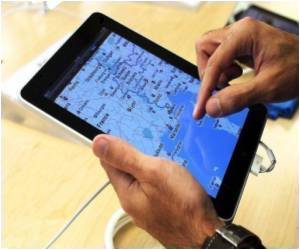A new study has found that a person scanning baggage or X-rays can miss out on multiple objects during searches if they were feeling anxious.

Stephen Mitroff, an assistant professor of psychology and neuroscience who led the experiment, says this area of cognitive psychology is important for improving homeland security and healthcare.
He's begun collaborating with the Transportation Security Agency at RDU airport and radiologists at Duke.
To simulate a stressful situation in this study, the researchers told the participants they might receive an unpredictable electrical shock for half of the trials that would be unrelated to their performance.
Annoying but not painful electrical shocks are a well-established means of inducing anxiety in the lab.
Only tests run without a shock were analysed, focusing the research on the anxiety produced by anticipating a negative event. On the other half of the trials, participants heard a harmless tone.
Advertisement
Mitroff said missing a second target is a well-known issue called "satisfaction of search", and it's believed to account for about 40 percent of radiology misses.
Advertisement
Mitroff added that anxiety heightened the satisfaction-of-search problem, a finding which has important implications for the way we train and test searchers.
Source-ANI









